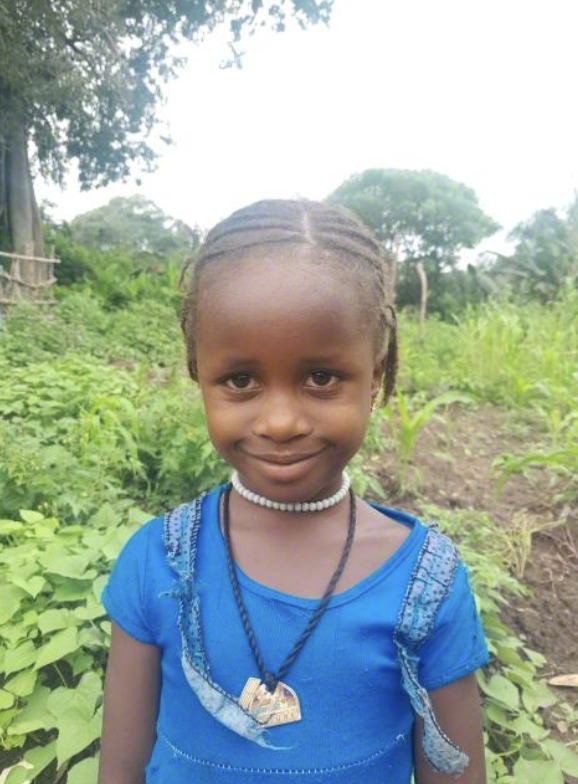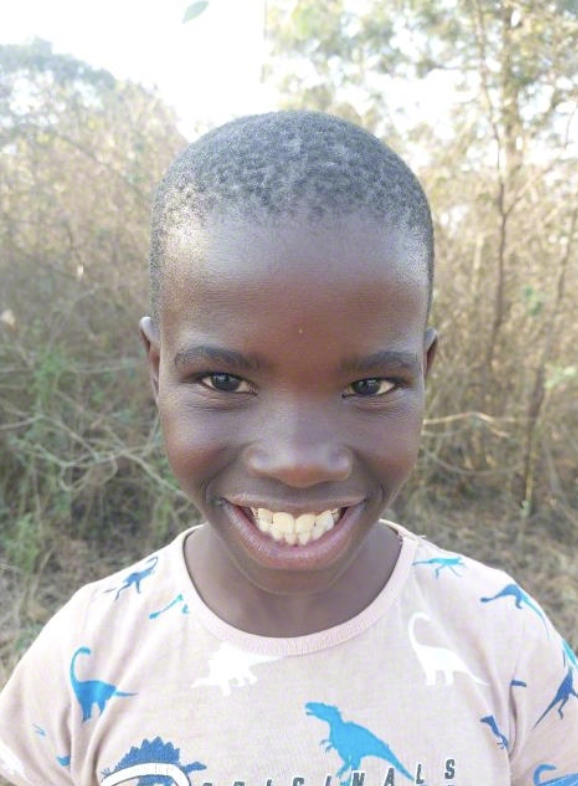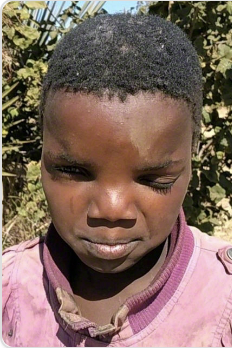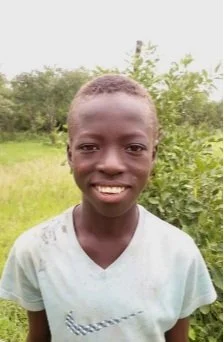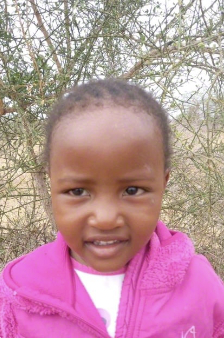Sponsored Kids
Through our Speech and Debate courses, we have used the funds we raised to sponsor 20 children in need from over 10 countries around the world through World Vision. We hope that our efforts will continue to make a meaningful impact globally.
Mahamadou's Story
Mahamadou is growing up in a rural desert community in Niger. Many families rely on farming and selling handcrafts to provide food and income, but most people don’t have their basic needs met. In Niger, as many as one in four girls are married before age 15, which takes away their chances for an education and healthy development before having children. Other children are kept at home to help provide income for their families instead of going to school. The community doesn’t have access to clean water and sanitation facilities, contributing to poor health. Children are growing up malnourished and suffer from preventable diseases and health issues like malaria and anemia. The schools here aren’t well equipped or well resourced, and though many kids are enrolled in school, not many do well on their national exams.
Elhadj's Story
Elhadj lives in Monguel, a community in the southern region of Mauritania. The land consists of plains, streams, and mountain ranges, and receives little rainfall in a typical year. The economy relies primarily on rain-fed agriculture. Among its challenges, the community suffers from malaria, and many vulnerable groups also suffer from severe acute malnutrition. Households lack adequate access to water, and children do not have suitable learning environments. Many children also suffer from harmful practices like child labor, child marriages, and female genital mutilation.
Poreh's Story
Poreh is growing up in the Mongo area of Koinadugu in northern Sierra Leone, a hilly, hot, and mostly dry, with alternating forests and savannahs. It encompasses a large region, where communities are separated by many miles and rough roads. This isolation means people who live here often don’t get access to social services, like healthcare or financial services. Families mainly make a living through agriculture, growing vegetables and raising cattle, and large gold mines in the area attract children to work there instead of staying in school. Women and girls face barriers to progress, since prevailing cultural norms don’t allow them to make decisions in their households or freely pursue their educations. Many young children die here because they can’t get medical care with health centers so far away. Although school enrollment has increased since 2018, when the Sierra Leonean government made education free, some parents still think it’s best for kids to work at home instead of going to school.
Fankulu's Story
Fankulu lives in Sulima, a region located in the Northern Province of Sierra Leone. This area is a recently-formed district divided into 13 chiefdoms. While its 40 square miles make it one of the largest districts, Sulima is also one of the least populated districts in the country, with approximately 205,353 residents. The region has a dry season and a wet season. Much of the area consists of forests, but it also includes mountains, hills, valleys, swamps, flatlands, rivers, and streams. You can find a variety of wildlife as well, including monkeys, deer, leopards, and antelope. The most common form of transportation is motor bikes, although some regions are difficult to access during the rainy season.
Nomphilo Amahla's Story
Nomphilo Amahla is growing up in a poor area in Eswatini. The HIV and AIDS crisis has severely damaged the social fabric of the entire community, leaving many children without parents. Many families live in small houses made of bricks or stones, with tin roofs. A typical diet consists of maize, beans, and potatoes. Families are largely dependent on agriculture for income and food. The terrain is hilly and forested. She helps at home by running errands. She likes to play with toys. She is in satisfactory health.
Mubarek's Story
Mubarek is growing up in a poor area in Ethiopia. The HIV and AIDS crisis has severely damaged the social fabric of the entire community, leaving many children without parents. Many families live in mud huts with thatched roofs. A typical diet consists of root vegetables, such as sweet potatoes, and cereal grains. Agriculture is the primary income-generating activity; many families raise livestock or produce honey. He helps at home by caring for the animals. He likes to play soccer. He is in satisfactory health.
Alem's Story
Alem is growing up in a poor rural area in Ethiopia. The HIV and AIDS crisis has severely affected the social fabric of entire communities, leaving many children without parents. Typically, families live in small homes made from stone, with roofs made of iron sheets. Agriculture is the primary income-generating activity; many families produce maize or grain and raise livestock. She helps at home by being good. She likes to play. She is in satisfactory health.
Seluleko's Story
Seluleko is growing up in a poor area in Eswatini. The HIV and AIDS crisis has severely damaged the social fabric of the entire community, leaving many children without parents. Many families live in small houses made of bricks or stones, with tin roofs. A typical diet consists of maize, beans, and potatoes. The terrain is hilly and forested, and the climate is relatively mild with winter temperatures in the 60's. He helps at home by caring for the animals. He likes to play ball games. He is in satisfactory health.
Batty's Story
Batty is growing up in a rural farming province located in southwest Sierra Leone. Houses are made of mud bricks and thatch roofs. Staple foods include rice, cassava, and leafy vegetables. The terrain is flat and rugged but the soil is dark and fertile. The rainy season is May to October and the temperature is milder. The climate is dryer but humid and warm from November to April.
Bockrie's Story
Bockrie is growing up in northern Sierra Leone, near the border with Guinea. It’s a rural region where people mainly make a living through agriculture, and the majority of the population is Muslim. Children who are orphaned or have disabilities are especially vulnerable, as the area lacks social services that could protect or support these kids. Teenage pregnancy rates are high, and child marriage is still a culturally acceptable practice. Boys also drop out of school to help on family farms, and when students get the chance to attend school, they often have to walk long distances to get there. Parents—especially teenage moms—aren’t well-educated about caring for their kids’ health and nutrition, and many children are malnourished. The area has only one health center and it’s not well stocked with supplies, which means not enough people can access medical care when they need it.
Menzelokuhle's Story
Menzelokuhle is growing up in a hilly, warm, lowland area on Eswatini’s southern border with South Africa. Consistent with the national rates, about one in three people are unemployed in the region. Most people make a living through small farms and cattle herding, and some large timber companies also provide jobs. But a prolonged drought has left families vulnerable to uncertain incomes and not enough food. The majority of children under 5 don’t get registered with the government at birth, and without birth certificates, they can’t access basic services like healthcare throughout life. Most households don’t use clean drinking water, good hygiene practices, or sanitation facilities, which exposes them to more illnesses. Although students have access to free primary education, the area doesn’t have preschools and young students aren’t set up to succeed early on.
Alphious's Story
Alphious is growing up in one of Zambia’s most rural and underdeveloped areas. It’s a dry, flat region in the south, where people mainly make a living growing crops like maize or raising cattle. The remoteness of the area makes it difficult for vulnerable families and kids to get the support they need to change their circumstances. Many kids in Muchila suffer from poor health and malnutrition, especially the youngest. Some families are unfamiliar with good practices to give their kids balanced nutrition, so children stay in a cycle of underdevelopment and poor health. Many children don’t pass their classes after elementary school, in part because of overcrowded classrooms and a lack of teachers and learning materials. One in five boys drop out of school to help their families raise cattle. And about 80 percent of kids aren’t registered with the government at birth, which holds them back throughout their lives from accessing social services like healthcare. Many children are at high risk of abuse or exploitation, and child marriage for girls is a common cultural practice.
Francis's Story
Francis is growing up in a poor area in Uganda. The HIV and AIDS crisis has severely damaged the social fabric of entire communities, leaving many children without parents. Many families live in small mud brick homes with tin or thatched roofs. A typical diet consists of rice, millet, groundnuts, and vegetables. The climate is warm and the terrain is savanna grassland with tall trees.
Chanelle's Story
Chanelle is growing up in an agricultural area in eastern Burundi. Though people mainly try to earn a living by raising livestock or farming crops like bananas and maize, most farmers lack training and resources to improve their production, making it difficult to produce enough to eat and sell. More than half of kids under 5 aren’t developing at healthy rates because they’re not getting enough nutritious food. Families also lack access to clean water and latrines, and children suffer from preventable waterborne illnesses without proper sanitation. People have few opportunities to get healthcare, nutrition information, or medicine. Parents don’t prioritize education, and they have low awareness of how vital it is to breaking the cycle of poverty. Too many children must drop out to help make ends meet at home, and those who do stay in school face overcrowded classrooms and dilapidated buildings without infrastructure like running water. Family structures aren’t strong, and kids aren’t well-protected from violence or abuse, even at home.
Christine's Story
Christine is growing up in a poor area in Uganda. The HIV and AIDS crisis has severely damaged the social fabric of entire communities, leaving many children without parents. Many families live in small mud-brick homes with tin or thatched roofs. A typical diet consists of rice, millet, groundnuts, and vegetables. The climate is warm and the terrain is savanna grassland with tall trees.
Nebateru's Story
Nebateru is growing up in a hilly, grassy, farming region that’s the poorest in Ghana. Many families in Wa West rely on livestock and crops like mangoes, cashews, maize, and other fruits and grains for their incomes, but farmers can’t grow enough to sustain themselves. Lacking opportunities at home, youth often choose to leave and find work in other professions once they’re done with school. People living in the remotest parts of the rural area don’t have access to healthcare or schools. The district only has one bank and one credit union, so most people can’t access financial services like savings or credit that could help them get ahead. And schools aren’t well-staffed, which hinders students from getting a quality education. As many as one in five teenage girls are already married and having children.
Rymond Joseph's Story
Rymond Joseph is growing up in a poor area in Uganda. The HIV and AIDS crisis has severely damaged the entire community as many adults are too sick to work or care for their children. Many families live in houses made of mud and bricks with tin or thatched roofs. A typical diet consists of cassava, maize, beans, sweet potatoes, and groundnuts. The terrain is a flat savannah plateau covered with tropical rainforests.
Renang's Story
Renang lives with his parents, 1 brother and 1 sister. His parents struggle to provide for the family. His father is unemployed and his mother is unemployed. Despite their efforts, it is difficult to meet the family's needs.
Clairia's Story
Clairia is growing up in a poor area in Burundi. The HIV and AIDS crisis has severely damaged the social fabric of the entire community, leaving many children without parents. Families survive on a diet of root vegetables such as cassava and potatoes, as well as bananas, maize, and rice. The terrain is mountainous and the climate is warm, making the community vulnerable to drought during the dry season.
Brigite Kavini's Story
Brigite Kavini lives with her grandmother and has no brothers or sisters. Her grandmother struggles to provide for the family. Her grandmother is unemployed. Despite their efforts, it is difficult to meet the family's needs. The terrain varied with flat valleys and rolling hills covered with acacia trees and rich red dirt. Families live in mud and brick homes with tin roofs. A typical diet consists of maize, beans, and vegetables.
Greaty's Story
Greaty is growing up in a poor area in Uganda. The HIV and AIDS crisis has severely damaged the social fabric of the entire community, leaving many children without parents. Many families live in small mud brick homes with tin or thatched roofs. A typical diet consists of cassava, maize, beans, and vegetables. The climate is hot and the terrain is a beautiful savanna, where acacia trees create a canopy of shade.




